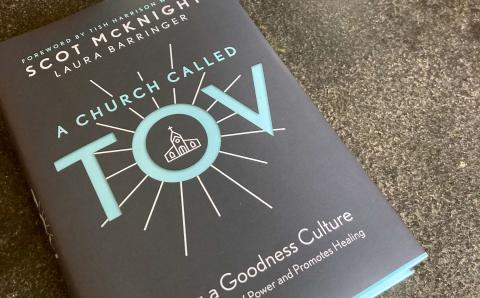“Come, let us bow down in worship, let us kneel before the LORD our Maker.”
—Psalm 95:6
Reformed Christians often recite Bible verses like this as our call to worship on Sunday morning or in our daily devotions. But have you ever considered how people outside the church might hear this verse or the many other commands in Scripture to bend one’s knee or lift hands to God in worship? Richard Dawkins, one of Christianity’s fiercest detractors, declared in his best-selling book The God Delusion that “the God of the Old Testament is arguably the most unpleasant character in all fiction.” Dawkins and his friends find God repulsive for many reasons, among them that Scripture seems to depict God as a megalomaniac who needs—even demands—worship.
If God needs us to worship him, then what does that say about God?
Perhaps we could soften Dawkins’ accusation: God doesn’t need our worship; he simply wants us to glorify him. But doesn’t this only soften the tyrant into a narcissist? “Ascribe to the LORD the glory due his name; bring an offering and come before him” (1 Chron. 16:29). Now God appears to need fawning admirers in order to boost his self-esteem, much like a celebrity requires Instagram followers to stay relevant.
While we initially might be startled by Dawkins’ accusation, after a little reflection most of us probably feel there’s something not quite right about his argument. Yes, it’s unpleasant when a person demands praise and honor from us. But “God ain’t us,” as the country singer Steve Earle says—“God is God.” Further, most believers have a deep sense that we need to say “Great is the LORD and most worthy of praise” (Ps. 96:4) more than God needs to hear it. For God loves us and wants to give us the one thing without which we can be neither happy nor fulfilled: God. We worship not foremost for his sake but ours.
Indeed, Reformed theology has always been allergic to the idea that God needs our worship to be fulfilled. “God does not depend on anyone or any force beyond himself,” writes Laura Smit of Calvin University in an article on God’s nature. She’s expressing what the old theology called “aseity,” or God’s total self-sufficiency. God’s aseity is good news! It means that God is not a divine tyrant who needs groveling slaves or a cosmic celebrity who needs adoring fans. God can be utterly gracious to us because God doesn’t need us or anything from us (such as our worship). The triune God created the world, redeemed humankind, and is reconciling all things not because God must but from “sheer grace, according to the free good pleasure of his will” (Canons of Dort, 1.7).
That God deals with us out of freedom rather than need unburdens us from having to satisfy that need through our worship or obedience. Those modern philosophies and trendy spiritualities that insist God is incomplete without us should admit the crushing expectation this places upon us. Honestly, most people are overwhelmed simply trying to satisfy the finite needs of family and friends. “Oh baby, / where are you now when I need you most?” complains The Weeknd in a recent hit song. Imagine how quickly you’d burn out if an infinite God were to sing that to you! It’s a mercy we don’t have to satisfy God’s needs through our worship or obedience.
All this being said, perhaps Reformed Christians can still say in a careful way that God does need our worship. God freely and graciously chooses us and binds himself to us in covenant. And when his people “live for the praise of his glory” (Eph. 1:12, NRSV) through our worship and witness, we do play an essential role in making known the Father’s “plan ... to gather up all things in him” (1:10, NRSV) through the Son. God has freely chosen to depend on the worship and prayers of his Spirit-filled church in order to make his kingdom known.
About the Author
Todd Statham is the Christian Reformed chaplain at the University of British Columbia (Okanagan Campus) and a research fellow at the Kirby Laing Centre for Public Theology in Cambridge.








